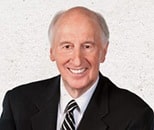Confess your trespasses to one another, and pray for one another, that you may be healed. The effective, fervent prayer of a righteous man avails much. – James 5:16
Who can wonder why people don’t pray.
If healing is a wild goose chase, then let’s forget it.
So often, prayer for healing ends up as a last-ditch proposition, an expression of resignation to fate, an assignment of blame to the Creator. So who needs it? The only reason to pray under these circumstances would be to pacify a God who taunts us from on high, or to kneel before a vicious deity lest we further incite His wrath. This is the prayer of the heathen, groveling before gaudy idols, hoping for a little luck in exchange for incense burned.
Let’s get three things straight:
First, God is a good God. Second, sin and Satan – flesh and hell – have fouled up God’s intended processes for mankind. Third, the redeemed – those who have received God’s gift of life in Jesus – are His main channel of dealing grace and goodness on this planet.
We must smash the image of a frowning God, brooding in anger, perched on the edge of a ten- mile-high cliff and ready to hurl a quiver of lightning bolts at the unsuspecting and the helpless. The beauty of the Father’s personality was so perfectly mirrored in Jesus that the Savior declares, “If you’ve seen Me, you’ve seen the Father” (John 14:9).
God is good. God does good. He cannot even be tempted to do otherwise (James 1:13). Further, it is the will of God to heal and deliver the sick and tormented. All sickness and pain are adverse to His will.
But the Father has appointed multiple remedies for sickness and pain: through natural recuperative processes, through climate and diet, through the charitable efforts of mankind by hospitals, doctors and medicine and through the divine means of healing gifts distributed by the Holy Spirit and ministered in the Name of Jesus.
Sin and Satan work disorder and destruction. God doesn’t. He shows us how to surmount our heartbreaks and our tendency to fail and helps us to overcome the slings of satanic fury bent on death and destruction.
You and I can help decide which of these two things – blessing or cursing – will happen. We can determine whether God’s goodness is released toward specific situations, or whether the power of sin and Satan is permitted to prevail.
Prayer is the determining factor.
I believe in the power of Jesus Christ to heal the sick and afflicted and to break any bondage when His Name is invoked in any circumstance. I believe His power is as consistently available today as during His own earthly ministry and that, through His Cross, He has provided the grounds for us to expect and receive healing and deliverance as surely as we may receive forgiveness and sanctification.
Prayer can change anything. The impossible doesn’t exist.
His is the power.
Ours is the prayer.
Without Him, we cannot.
Without us, He will not.
Because I believe this I accept the ministry of healing as a part of the Lord Jesus Christ’s commission that the Church go to the whole world with the Gospel. This includes proclaiming God’s will and power to heal, and in Jesus’ Name that the prayer of faith be offered, confession of sins be made unto deliverance, elders anoint with oil, and hands be laid on the sick that they may recover.
I believe in the power of God’s Word and Spirit to sustain and supply health to those who walk simply and humbly before Him in faith. I believe the fruit of such faith will be manifest in love and patience.
So I reject any system that produces lovelessness or induces guilt when a believer in Jesus does not seem to be able to receive physical healing or personal deliverance from sickness or any other torment.
Committed to these beliefs, we can withstand every evidence of pain, suffering, sickness, disease, bondage or torment, because we are convinced the good fight of faith will prevail unto health. We can be equally convinced that, in cases where victory is not apparent in the way we wish, a victory of another order is being brought about by the divine grace of Almighty God.
How then can we be healed and bring about healing in others?
I believe in divine healing – not in faith healing.
What is the difference?
“Faith healing” is a catch-all phrase generally used by the media and others without discernment, who cannot tell the crucial differences between spiritual phenomena which emanate from the human spirit, the Holy Spirit or some hellish spirit.
The differences between faith healing and divine healing are vast.
Divine healing has as its focus on the person of Jesus Christ, while faith healing looks inwardly to human potential or outwardly to some human agent. Looking unto Jesus, the Author and Finisher of our faith (Hebrews 12:2), we make Him the center and source of healing gifts and miracles from God.
Faith healing finds its energy in self-generated, personal efforts, which claim to tap hidden resources within the individual or released through the “healer.”
Divine healing is ministered by the power of the Holy Spirit through divinely ordained promises, provision and providence. God’s healing grace and goodness span the realm of the medical field as well as the miraculous. Because God’s Word brings forth resources of health, healing and deliverance, our first point of appeal when sickness strikes should be to come to Him. Divine healing is never a last resort for a final crisis–but a first resort to request and receive the Father’s touch and wholeness in Jesus’ Name.
Divine healing comes about in balanced living without fanaticism. Our victories come through faith in Jesus Christ without pride over our “faith-power.” In rejoicing, we receive God’s provisions without legalistic insistence on human formulas or devices.
Divine healing comes amid praiseful worship to God, the Author of all gifts of healing, who is glorified as the Giver of health and power. Faith healing, on the other hand, glorifies some human personality operating at the center of a healing or miracle.
As we pray for divine healing, remember that God’s healing never postures itself in such a way as to deny or impugn a person who seeks medical counsel, treatment or help.
As a recipient of both miracle and medical healing graces over the years, and as a teacher of the truth of divine healing, I encourage a bold belief without falling prey to an uncompassionate or critical “faith-ism.” We should always be people who pray in faith for others without becoming people who push faith on others.
Assuring and affirming those for whom you pray is the truest manifestation of the Spirit you can offer when you stand beside someone who is sick or in pain. Friends who suddenly begin exhorting or challenging the quality of faith or living in the afflicted person are generally more of the spirit of Job’s “comforters” than of the Spirit of Christ.
Sick people need your acceptance more than they need your analysis. If God gives you discernment as to a sick person’s spiritual lack or need, take it as a directive to private prayer, not necessarily as an occasion to barrage them with words.
We also should always be people who know the receiving of medical help is not a rejection of divine healing. There is an unmasked fear still blinding some dear saints who want to “receive God’s best” and who somehow have deduced the employment of professional physicians is a renunciation of the Great Physician. As surely as I am convinced that sickness should be brought to the Lord first, I am not convinced that “real” answers to praying faith preempt the involvement of a doctor.
There is a notorious imbalance in some segments of the Body of Christ today, arrogantly reasoning that God would call men and women and equip them for medical ministries and then designate them “second best.” I praise God that He has enabled man to learn something of how to alleviate pain, mend bodies and save lives. I praise Him that being under a doctor’s care is neither a retreat from faith in God, nor a removal from being under His healing, sustaining hand.
We should always be people who know the difference between our human frailty, redemptive grace and the divine will of God.
The same imbalance is found in the proposition that “God sometimes wills the sickness for the good that it will accomplish.” I reject that idea because it smacks more of human philosophy than of biblical revelation. I hasten to add that I do believe sickness is normative to a fallen race. But so is sin. I don’t think you’ll find perfect health in this lifetime any more than I believe you’ll attain sinless perfection. Yet I do withstand both sin and sickness.
The fact I may not master the use of all the keys of the Kingdom in this life doesn’t keep me from taking them in hand and trying the locks. Often we can discern how to release His power and, even when the sickness prevails, we can experience the entry of His grace redeeming the afflicted situation. Lessons are learned, understanding is gained and people are touched.
Wisdom requires we view the full balance of God’s healing through natural, medical and miracle means, and we understand that any healing must culminate in adoration of Jesus.





